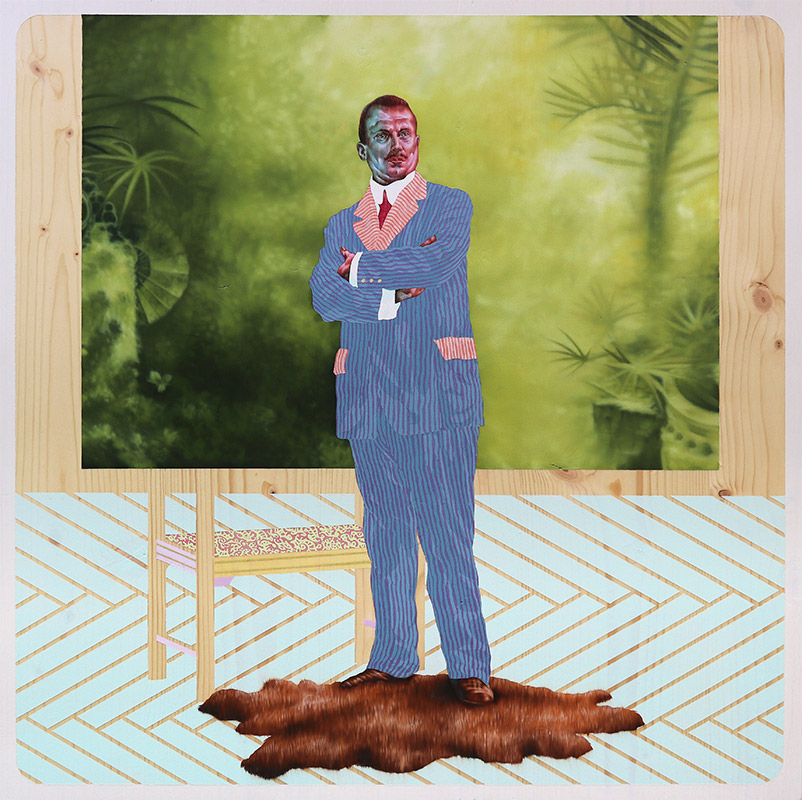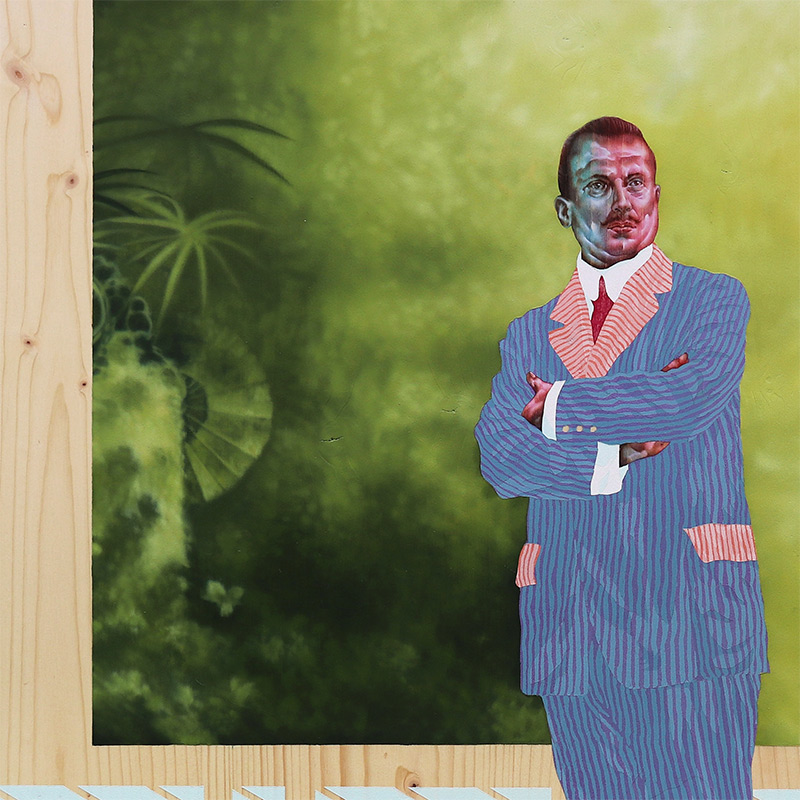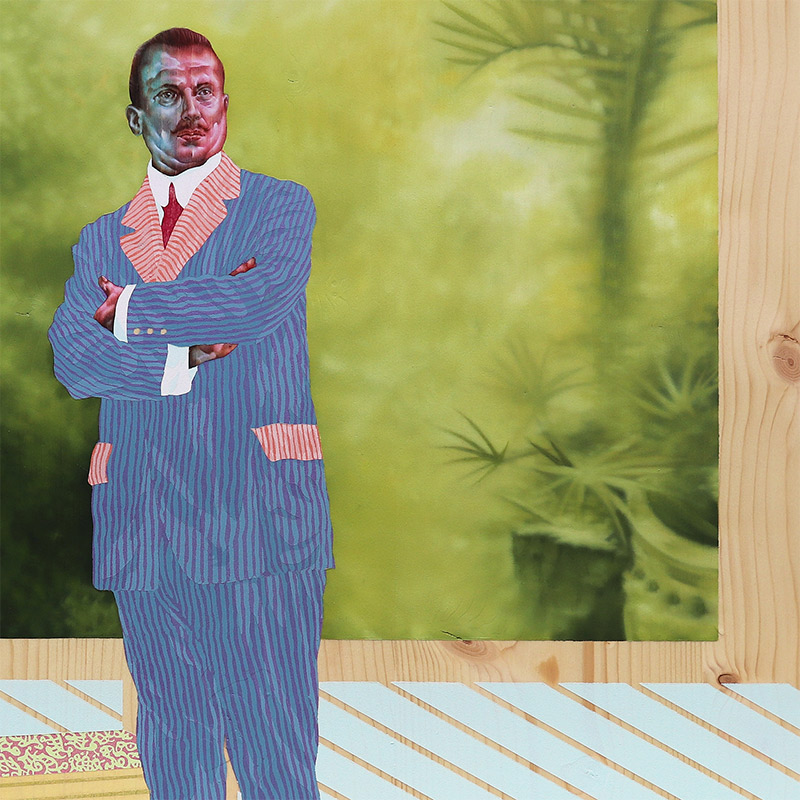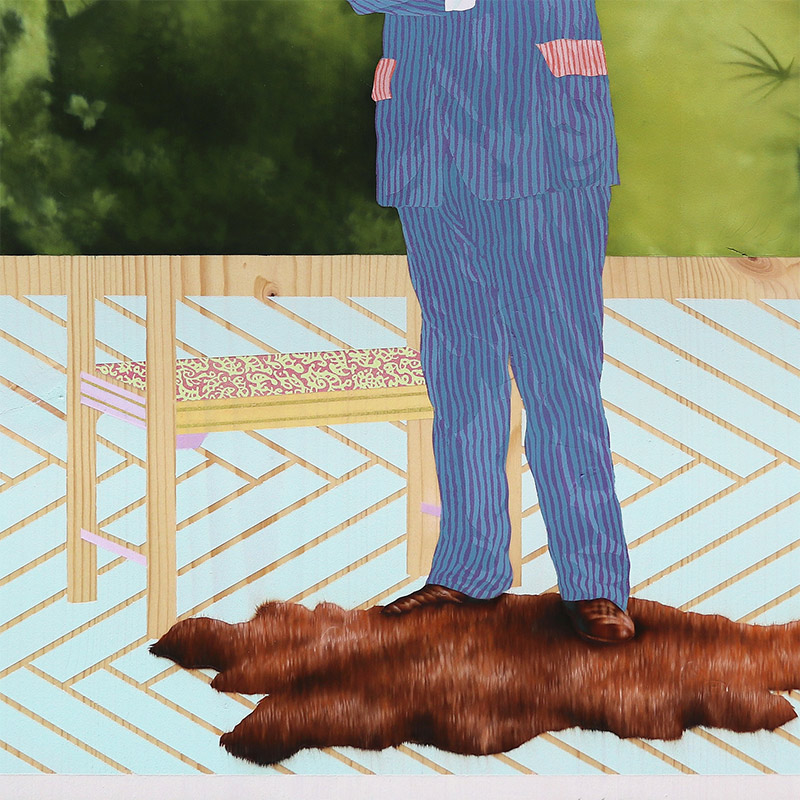Description
‘Formosa’ by Carlo Alberto Rastelli
Artist: Carlo Alberto Rastelli
Title: ‘Formosa’
Medium: Oil and acrylic on panel
Dimensions: 23.6″ x 23.6″
Framing: Unframed
Year of Creation: 2022
About the Artist:
(Artist Bio)
Carlo Alberto Rastelli was born in Parma in 1986. He studied at the Academy of Fine Arts in Riga, Latvia, and at the Academy of Fine Arts of Brera , Milan, where he graduated in Visual Arts in 2012.
He attended art residences in Belgium (Glo’ Art, Lanaken) and Iceland (SIM arts residence, Reykievik). He partecipated in several group shows and arti fairs, including: I beati anni del castigo, curated by Eva Comuzzi, Marina Bastianello Gallery, Venice (2021); Pittori fantastici nella valle del Po, curated by Camillo Langone, PAC Ferrara (2020); Zodiaco, curated by Daina Maja Titonel, MAC Gallery, Roma (2018); We are the ones-vol.1, CGK Gallery di Copenaghen (2017); Paesaggi, Studio d’Arte Cannaviello, Milano (2016); Art Fair / Fair for modern and contemporary art Cologne (2016); Karlsruhe Art Fair (2016); Della natura della ?gura e il volto, curated by Daniela Ferrari, Palazzo Trentini, Trento (2015).
In 2012 he won the Mondadori Art Prize (Painting section, category Academy). He’s been selected for the following prizes: Arteam Cup 2020, Combat Prize 2021 and 2019, Premio Ora 2019 and 2015, Premio Lissone 2014.
His last solo shows is Woodoo People at CUBO Gallery in Parma (2021).
He lives in Parma, where he works at the local art school.
(Artist Statement)
My last work is about time which I have analysed in two ways. First of all, through the choice of subjects, taken from old photos and visually translated into oil and acrylic (even if partly censored by perspective breakthroughs). These breakthroughs trace the characters’ silhouettes and open a kind of window on the image, intended as an archetypal idea of time, made up of stars, galaxies and black holes. Secondly, the temporal dimension emerges from the material used, i.e. the ?r tree wood, whose veins mark the passing of the years in life.




